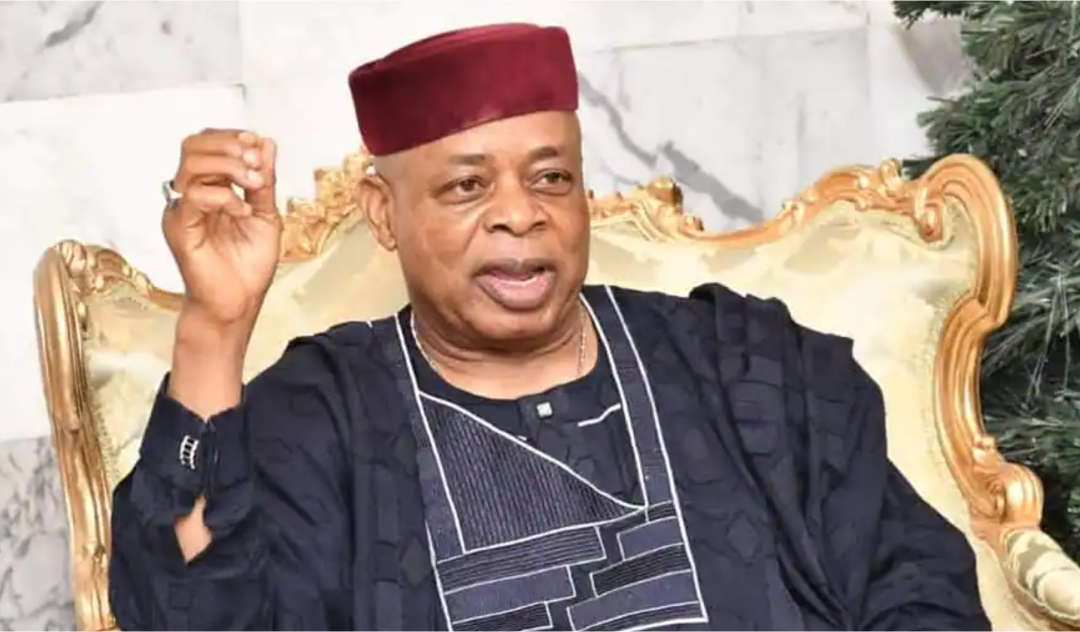In 2025, the government of Jigawa State took a decisive and commendable step to enhance the welfare of its public sector workforce by implementing a new minimum wage of ₦70,000. This move was not only timely but also strategically necessary, given the economic realities facing both state workers and the general population. The wage increase, which became effective on December 1, 2024, reflects the government's commitment to ensuring that civil servants receive fair compensation in an increasingly challenging economic environment.
Governor Umar Namadi, whose administration has consistently emphasized the importance of sustainable development and people-centered governance, announced the decision following recommendations from the state's wage review committee. In doing so, Jigawa State joined the growing number of Nigerian states choosing to go above the national minimum wage threshold of ₦30,000 in response to inflation and rising living costs.
This blog post provides a comprehensive analysis of the new minimum wage structure in Jigawa, its background, the implementation strategy, additional welfare policies accompanying the change, and its broader implications for labor relations in Nigeria.
Understanding the Context: Why ₦70,000?
To understand why the Jigawa State Government chose ₦70,000 as its new minimum wage, one must first consider the broader economic conditions prevailing in Nigeria at the time. Over the past few years, the Nigerian economy has faced multiple challenges, including:
-
Rising inflation rates, particularly in food and housing.
-
Persistent depreciation of the naira, affecting the cost of imported goods.
-
Fuel subsidy removal, which increased transportation costs nationwide.
-
General reduction in the purchasing power of civil servants.
The previously existing ₦30,000 minimum wage, which had been introduced in 2019, no longer reflected the economic reality of average households. For civil servants supporting families, paying rent, commuting to work, and meeting other obligations, ₦30,000 barely covered essentials. The gap between income and living expenses had become untenable.
The choice of ₦70,000 was strategic. It more than doubled the previous minimum wage and placed Jigawa among the few states with forward-thinking policies on worker compensation. More importantly, it was backed by fiscal planning and administrative readiness, indicating a long-term commitment to sustaining the increase.
Timeline and Implementation
The new wage structure officially took effect on December 1, 2024. However, the decision to implement it was preceded by months of preparation, which included:
1. Wage Review Committee
Governor Umar Namadi set up a wage review committee tasked with analyzing the state’s financial capabilities, assessing inflationary trends, consulting with labor unions, and benchmarking wages against other states. The committee’s report formed the foundation of the new policy.
2. Stakeholder Consultations
Open dialogue was maintained with labor unions including the Nigeria Labour Congress (NLC) and the Trade Union Congress (TUC). This ensured that the new wage regime would be mutually acceptable and free of conflict. Worker unions praised the government's willingness to engage in constructive negotiations.
3. Payroll Verification
Before implementation, the state undertook a comprehensive payroll audit. This helped identify ghost workers, streamline the wage bill, and make room for the new wage without bloating the budget. The payroll cleanup also reaffirmed transparency and accountability in civil service administration.
4. Gradual Rollout and Communication
While the wage officially kicked off in December, information was disseminated months prior, allowing civil servants to plan their finances accordingly. Communication from the governor’s office assured timely disbursement and consistency in monthly payments.
Beyond Salaries: Complementary Welfare Policies
What distinguishes Jigawa State’s minimum wage policy from similar policies in other states is its integrated approach to worker welfare. Rather than increasing wages in isolation, the state introduced additional measures to help civil servants stretch their earnings and reduce dependency on loans or informal credit systems.
1. Subsidized Shops
The government introduced subsidized retail outlets where civil servants could purchase essential goods such as rice, oil, soap, and other household items on credit. These shops operate at below-market prices, helping workers make savings on monthly purchases. This initiative is especially important in a state where transportation and food costs have risen steadily.
2. Civil Servants’ Farming Initiative
Recognizing the agrarian nature of Jigawa’s economy, Governor Namadi’s administration encouraged civil servants to engage in part-time farming. The state provided credit facilities, access to farmland, and subsidized farming inputs to interested workers. This strategy not only supports food security but also provides an alternative stream of income for government employees.
3. Healthcare Incentives
The new wage policy also dovetailed with improvements in the healthcare system. The government ensured that health workers benefitted from the full implementation of federal wage recommendations for their sector. In addition, efforts were made to upgrade primary health centers, making healthcare more accessible to civil servants and their families.
Fiscal Responsibility and Economic Planning
A major concern often raised with wage increases is sustainability. Can Jigawa State sustain the ₦70,000 minimum wage over the long term?
Governor Namadi’s administration approached this issue through prudent financial planning. Rather than relying solely on federal allocations, the state intensified efforts to boost its Internally Generated Revenue (IGR). These include:
-
Expansion of the tax base through digital tax registration.
-
Improved land administration to generate revenue from property-related transactions.
-
Formalization of the informal sector, bringing more micro businesses into the tax net.
Additionally, cost-saving measures such as payroll verification, digital audits, and control of overhead costs contributed to freeing up funds for wage sustainability.
Public and Union Reactions
The response to the new minimum wage in Jigawa has been overwhelmingly positive. Civil servants across the state welcomed the raise with open arms, citing it as a critical step in regaining financial stability. The NLC and TUC lauded the decision as an example of what is possible when governments prioritize the welfare of their people.
Citizens noted that the raise would also stimulate local commerce, as better-paid workers would have more disposable income to spend in markets and shops. Local business owners expect a rise in demand for goods and services, further boosting the state economy.
Summary Table: Key Details of Jigawa’s 2025 Minimum Wage
| Feature | Details |
|---|---|
| Previous Minimum Wage | ₦30,000 |
| New Minimum Wage | ₦70,000 |
| Effective Date | December 1, 2024 |
| Governing Administration | Governor Umar Namadi |
| Stakeholder Involvement | NLC, TUC, Wage Review Committee |
| Key Welfare Add-ons | Subsidized Shops, Farming Credits, Health Support |
| Fiscal Strategy | Payroll audit, IGR expansion, cost controls |
Conclusion: A Bold and Visionary Move
Jigawa State’s 2025 minimum wage increase is not merely a policy shift—it is a bold statement of intent. It reflects a government that listens, responds, and acts in the best interest of its people. By coupling the ₦70,000 wage with structural welfare programs and sound fiscal management, Governor Namadi’s administration has created a holistic model for public sector reform in Nigeria.
As inflation continues to challenge households across the country, Jigawa’s approach stands as a beacon of what is possible with the right leadership and priorities. Other states would do well to study and replicate this model for the benefit of Nigerian workers and the economy at large.











